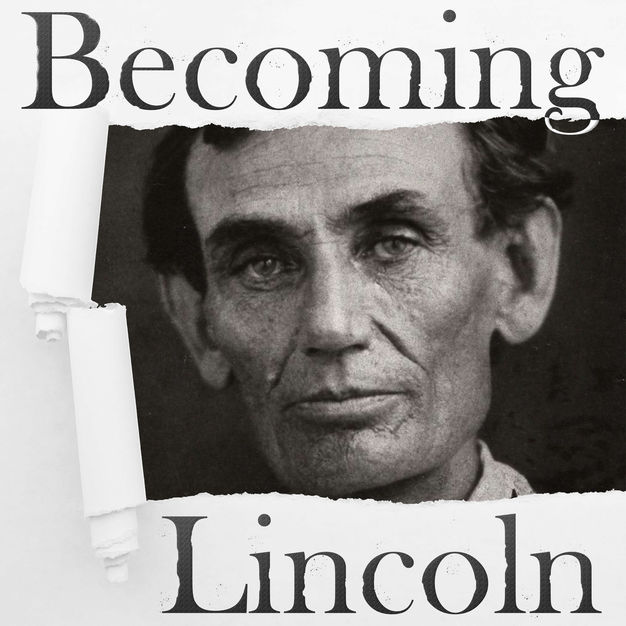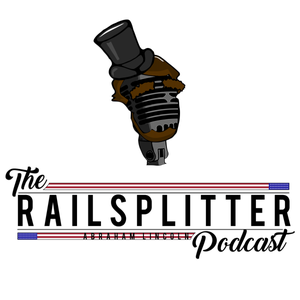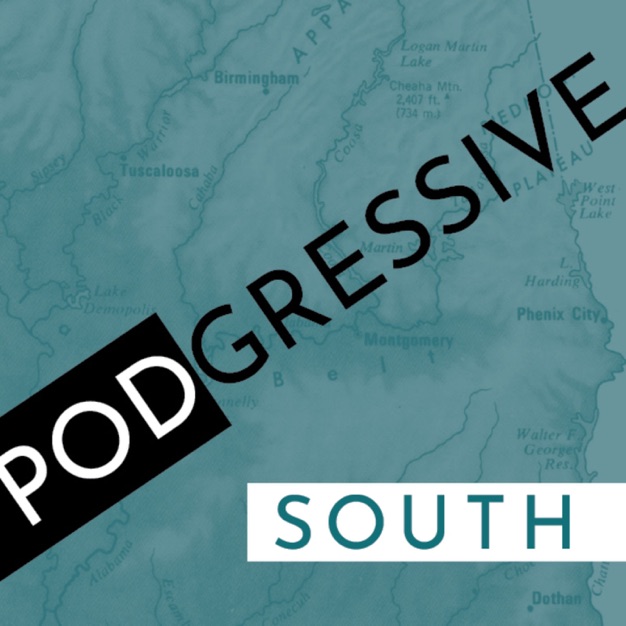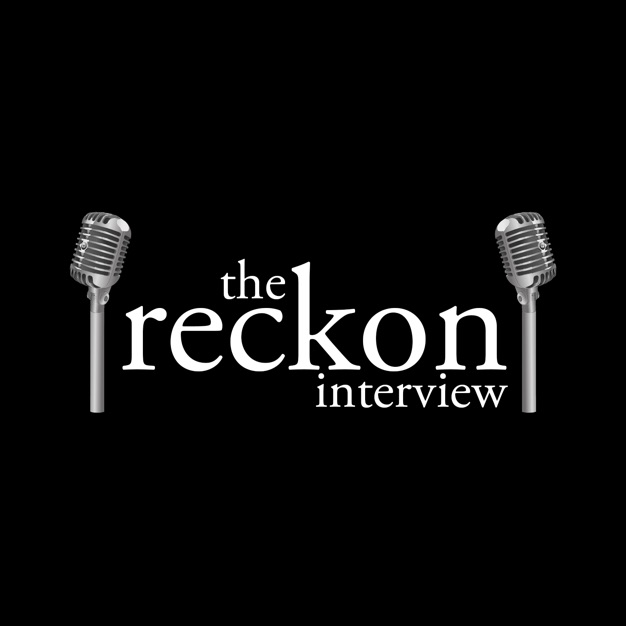
Becoming Lincoln
Brian Lyman
A podcast on the life of Abraham Lincoln, from his ancestors to his afterlife.
- 34 minutes 57 secondsRadicals and All
As the Whig Party withered away in 1855, Abraham Lincoln found himself pulled toward the new Republican Party -- an organization that not only stood foursquare against slavery's expansion, but brought an economic vision that reflected northern attitudes and explicitly rejected the Southern way of life.
Sources used:
Blumenthal, Sidney: All The Powers of Earth. Simon and Schuster, 2019.
Burlingame, Michael, Abraham Lincoln: A Life. (Vol. 1). The John Hopkins University Press, 1995.
Collected Works of Abraham Lincoln. 1953 Edition hosted by the University of Michigan.
Davis, Rodney and Wilson, Douglas, ed. Herndon on Lincoln: Letters. Knox College Lincoln Studies Center, 2016.
Donald, David Herbert, Lincoln: A Biography. Simon and Schuster, 1995.
Foner, Eric, Free Soil, Free Labor, Free Men: The Ideology of the Republican Party Before the Civil War. Oxford University Press, 1995.
Foner, Eric, The Fiery Trial: Abraham Lincoln and American Slavery. W.W. Norton and Company, 2011.
Holt, Michael, The Rise and Fall of the American Whig Party: Jacksonian Politics and the Onset of the Civil War. Oxford University Press; 1999.
Sumner, Charles, "Equality before the law, unconstitutionality of separate colored schools in Massachusetts : argument of Charles Sumner, Esq., before the Supreme Court of Massachusetts, in the case of Sarah C. Roberts vs. The City of Boston, December 4, 1849." hosted on the Library of Congress website.Wilentz, Sean, The Rise of American Democracy: Jefferson to Lincoln. W.W. Norton and Company, 2005.
1 May 2024, 6:00 am - 35 minutes 11 secondsThe Dove Shall Bring My Sorrow
Being an enslaved person in America in the 1850s meant the ever-present threat of violence and separation from loved ones. And throughout the decade, the white South became increasingly determined to spread it as far as they could.
Sources for this episode:
Berlin, Ira and Rowland, Leslie, ed. Families and Freedom: A Documetary History of African-American Kinship in the Civil War Era. The New Press; 1997.
Berlin, Ira, Generations of Captivity: A History of African-American Slaves. Belknap Press; 2003
Born in Slavery: Slave Narratives from the Federal Writers' Project, 1936 to 1938. Hosted by the Library of Congress.
Berry, Dana Ramey, Swing the Sickle for the Harvest Is Ripe: Gender and Slavery in Antebellum Georgia. University of Illinois Press; 2007
Collected Works of Abraham Lincoln. 1953 Edition hosted by the University of Michigan.
Genovese, Eugene, Roll Jordan Roll: The World the Slaves Made. Vintage Books; 1972.
Johnson, Walter. Soul By Soul: Life Inside The Antebellum Slave Market. Harvard University Press, 1999.
Mellon, James, ed. Bullwhip Days: The Slaves Remember. Grove Press; 1988
McCurry, Stephanie, Masters of Small Worlds: Yeoman Households, Gender Relations, ad the Political Culture of the Antebellum South Carolina Low Country. Oxford University Press; 1995.
McDonald, Roderick, "Independent Economic Production By Slaves on Antebellum Louisiana Sugar Plantations" in Cultivation and Culture, Labor and the Shaping of Slave Life in the Americas, eds. Ira Berlin and Philip D. Morgan. University Press of Virginia; 1993.
Rothman, Joshua D., The Ledger and The Chain: How Domestic Slave Traders Shaped America. Basic Books; 2021.
Waller, John C., Health and Wellness in 19th Century America. Greenwood; 2014.24 April 2024, 6:00 am - 33 minutes 58 secondsThe Cause
The Kansas-Nebraska Act threw American politics into chaos in 1854. The two-party duopoly that existed for the previous 20 years was swept away in the space of a few months. As Abraham Lincoln fought for the anti-Nebraska coalition in Illinois, he found himself with an unexpected political opportunity -- followed by the most difficult decision of his career to that point.
15 January 2020, 7:00 am - 34 minutes 20 secondsWe Rose Fighting
Nursing his own ambitions and trying to hold onto his power in the U.S. Senate, Stephen Douglas agreed to introduce legislation repealing the Missouri Compromise and opening the upper Midwest to slavery. The brazen assault by pro-slavery forces upended the nation's party system and brought Abraham Lincoln to the forefront of the forces opposing Douglas and defending the Declaration of Independence.
8 January 2020, 7:00 am - 33 minutes 17 secondsA Western Man
Abraham Lincoln would never had become president had he not locked horns with Stephen Douglas, whose rapid rise through Illinois politics quickly made him a national icon. Douglas' life had some parallels to Lincoln's, and in many ways, his attraction to money and flexible policy better embodied the America of the early 1850s than the old parties did.
18 December 2019, 7:00 am - 34 minutes 9 secondsMore Than Ordinary Prejudice
Abraham Lincoln's racial attitudes were complicated. He was willing to defend fugitive slaves and appears to have lived in what was (for its time) an integrated neighborhood. But he also defended a slaveholder in court, and advocated for schemes to persuade African-Americans to leave the land of their birth.
11 December 2019, 7:00 am - 33 minutes 52 secondsDon't Shoot Too High
Abraham Lincoln's law practice was dominated by debt cases and the messy but commonplace disputes that make up a legal practice then and now. He plied his trade throughout central Illinois and was a popular companion for other attorneys in his field. But was he a good lawyer?
4 December 2019, 7:00 am - 33 minutes 2 secondsMany Loved Ones Gone Before
Mary Lincoln's domestic life often involved working as a single parent and managing tight finances while her husband was out making a living. Both parents were devoted to their children, and faced devastation when their son Eddie became sick in late 1849. Less than a year later, Abraham Lincoln made a fateful choice when he received word that his father Thomas was ill.
27 November 2019, 7:00 am - 32 minutes 22 secondsAll My Wishes in the Dust
As he returned for the final congressional session of his term, Abraham Lincoln tried to lay the groundwork for the future of his party -- by proposing the abolition of slavery within the District of Columbia, and in using the patronage powers of the newly elected Whig president. But opposing forces, and Lincoln's underestimation of them, led to disappointment.
20 November 2019, 7:00 am - 33 minutes 17 secondsGood Whigs
The Whigs were desperate for victory in 1848, and Abraham Lincoln joined a group promoting the candidacy of General Zachary Taylor. Lincoln showed that he could be an effective speaker -- but he could not have foreseen that his efforts would help destroy the party that he had devoted his life to.
13 November 2019, 7:00 am - 35 minutes 33 secondsWar at Pleasure
The U.S. invasion of Mexico in 1846 sparked a humanitarian catastrophe that had profound consequences for both countries. Abraham Lincoln joined a Whig fight against the war.
6 November 2019, 7:00 am - More Episodes? Get the App
Your feedback is valuable to us. Should you encounter any bugs, glitches, lack of functionality or other problems, please email us on [email protected] or join Moon.FM Telegram Group where you can talk directly to the dev team who are happy to answer any queries.
 The Railsplitter: The Abraham Lincoln Podcast
The Railsplitter: The Abraham Lincoln Podcast
 In the Weeds with Alabama Daily News
In the Weeds with Alabama Daily News
 Podgressive South
Podgressive South
 Reckon Interview
Reckon Interview